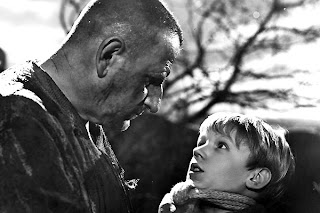As
for as long as I have been homeschooled, I have had opportunities to explore my
interests with science. So, I think giving those opportunities to other girls
and minorities would also get them involved in engineering. First, getting out
into the community is important; for example, go to a nearby creek and build a
dam, or visit a flower garden and take soil samples. Also, let the students
actually do engineering, so they can see for themselves that they are
capable of achieving it. They can build a robot kit, or put together models of
atoms. If teachers want to get girls
interested in engineering, then letting them meet female scientists who are
successful is also a great idea! Having a mentor or someone to look up to will
let girls know that they can be both smart AND cool. Encouraging girls and
minorities to choose a STEM career should start when they are young.
Visiting
familiar places and showing kids how engineering is used there would be a good thing
for students to see. Any place there is moving water, like a stream or creek,
is one place to take them. They can build a dam, to tell about structural
engineering. Kids like to play in sand boxes, so take them to a park. There you
can build tunnels and castles together, and talk about architectural
engineering, and they can learn how to keep buildings stable. Take them to a
wonderful, beautiful flower garden. Give the kids an opportunity to take soil
samples to see what they use, and how the beds are made. This might spark an
interest in agricultural engineering. Showing how engineering works in familiar
places to students is a good idea.
Let
the students do engineering to see that they are capable. Get a robot
kit so they can build one. They can see how mechanical and electrical engineering
works when building this. Also, they can build a model of an atom, which is a
way to introduce chemical engineering. Board games that have a science theme
would be another wonderful idea. Students will like Jenga and it teaches
kids to do structural work. Another board game to consider is Totally Gross;
it can teach kids more about chemistry and biology. If the kids see they can
accomplish science, they will believe they are capable of doing more.
Letting girls meet
female scientists who are successful is a good way to get them interested in
engineering! Girls like to have a female role model, because then they feel
more confident in themselves. Bring them to a meeting that has a female
engineer speaking, it might make them a little more interested in the speech.
Let them talk to the speaker, afterward, to get more information out of the
person. The girls will feel more comfortable about engineering as a career, if
there is a female engineer they can talk with regularly.
Since I was homeschooled, I’ve had opportunities
to explore science and engineering careers that others have not. It’s a good
idea to give these same opportunities to other students. Students at a young
age would enjoy going to gardens, lakes and ponds. They love to go outdoors and
will be interested in discovering lots of new things, if you get them involved
in familiar place. Let the students actually do engineering, so they can see
for themselves that they are capable of achieving it. Bring them to science
talks and speeches, when a female or minority speaks. Encouraging girls and
minorities to choose a science career should start when they’re young, so they
learn from an early age that engineering is not only all around us, but that it’s
also fun!








